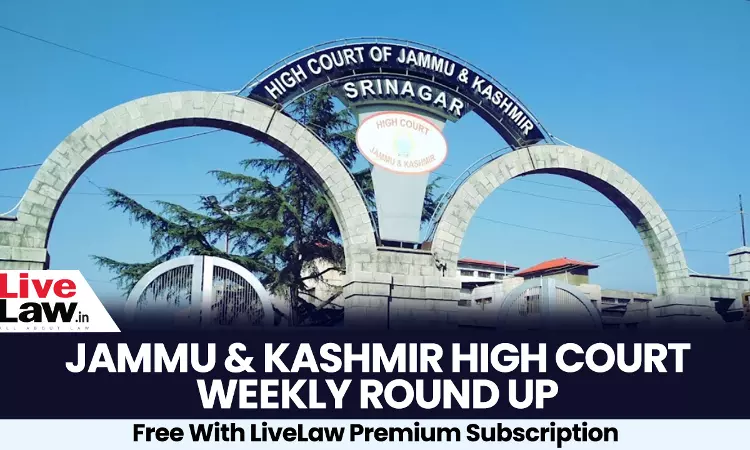Jammu and Kashmir and Ladakh High Court Weekly Roundup March 11 - March 17, 2024
LIVELAW NEWS NETWORK
18 March 2024 9:15 AM IST

Next Story
18 March 2024 9:15 AM IST
Nominal Index:Gulab Singh Vs Kuldeep Singh 2024 LiveLaw (JKL) 36Jehangir Ahmad Mir Vs UT of J&K 2024 LiveLaw (JKL) 37Ashok Kumar Vs Union of India through Secretary to Govt Industries Department 2024 LiveLaw (JKL) 38J&K Housing Board Vs Smt Harbans Kour 2024 LiveLaw (JKL) 39Smt. Rachna Gupta Vs Dr. Parmodh Baru 2024 LiveLaw (JKL) 40Mohd. Shafi Masi Vs UT of J&K 2024 LiveLaw...
